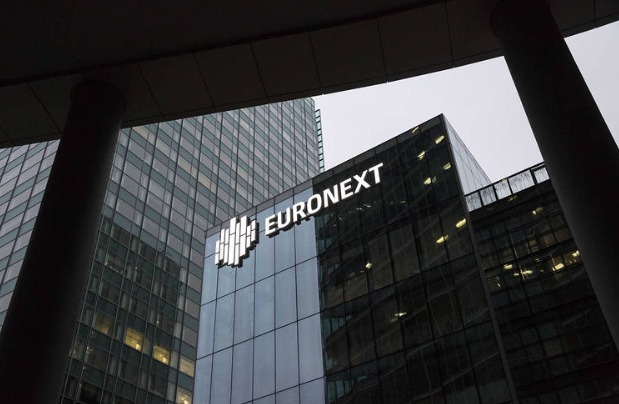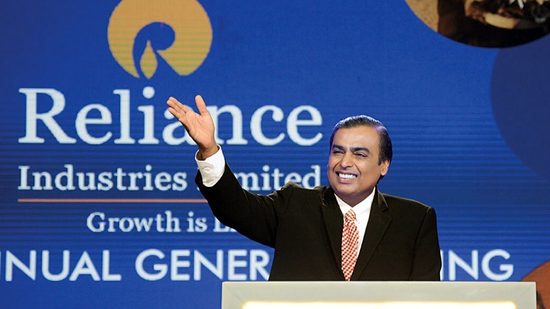
Euronext is a pan-European stock exchange that was formed in 2000 through the merger of the Amsterdam Stock Exchange, Brussels Stock Exchange, and Paris Bourse.
It is headquartered in Amsterdam, Netherlands, and operates four stock exchanges in Amsterdam, Brussels, Lisbon, and Paris.
With a market capitalization of $6.65 trillion, Euronext is the largest stock exchange in Europe by market capitalization and the fourth largest in the entire world among the top 10 biggest stock exchanges and offers a wide range of financial products and services, including trading, clearing, settlement, and market data.
The Euronext Stock Exchange is open from 9:00 a.m. to 5:30 p.m. Central European Time (CET) on all trading days. Trading hours may be extended depending on the type of security being traded and market conditions. After-hours trading is also available through some brokers.
It has a diverse range of listings, including equities, derivatives, exchange-traded funds (ETFs), and bonds, and serves a variety of market participants, including retail and institutional investors, market makers, and issuers.
Euronext also offers a range of post-trade services, such as central securities depositories, collateral management, and regulatory reporting. In addition to its core stock exchange business, Euronext also operates a number of other businesses, including Euronext Growth, which provides a platform for small and medium-sized enterprises (SMEs) to raise capital, and Euronext N.V., a holding company that owns a number of other financial services businesses, such as the Liffe futures and options exchange.
At the Euronext stock exchange, investors can trade stocks, bonds, ETFs, futures, and options in a wide range of markets. There are over 1,400 listings on the exchange, including many blue-chip European companies such as Nestlé, Total, and Unilever.
Euronext is regulated by the European Securities and Markets Authority (ESMA) and operates in accordance with the Markets in Financial Instruments Directive (MiFID), which allows it to offer access to a variety of markets across Europe.
Trading on Euronext is relatively straightforward. All you need to do is open an account with a broker and deposit funds. Once you have done that, you can then place orders to buy and sell stocks and other financial instruments.
Euronext also offers advanced trading tools and features, such as algorithmic trading, which enables traders to take advantage of market opportunities more quickly and efficiently.
Euronext is also a great option for investors who are looking to diversify their portfolios. The exchange offers access to a wide range of markets, including commodities, derivatives, and foreign exchange. This allows traders to take advantage of opportunities in different sectors and increase their exposure to different asset classes.
Overall, Euronext is a great option for investors who are looking to diversify their portfolios and access a wide range of markets. The exchange is well-regulated, has advanced trading tools, and offers access to a variety of markets.
History of the Euronext Stock Exchange
The history of Euronext can be traced back to the 16th century when the Amsterdam Stock Exchange was founded as a commodities exchange in 1602. It was the first regulated exchange in the world and served as a model for other exchanges.
In 1773, the Brussels Stock Exchange was founded. This was followed by the Paris Bourse in 1790. Both the Amsterdam and Brussels exchanges were merged in 1801, creating the united Amsterdam-Brussels Exchange.
In 1807, the Paris Bourse was reorganized to become the Paris Stock Exchange. The three exchanges continued to operate independently until the 20th century.
In 2000, the three exchanges were merged to create the Euronext stock exchange, one of the largest stock exchanges in the world. Since then, Euronext has grown to include additional exchanges in Amsterdam, Lisbon, and London, and currently operates 16 markets in 8 countries. It is the largest stock exchange in Europe and the fourth-largest in the world.
Euronext is a leader in the European financial markets and is one of the most liquid and transparent exchanges in the world. It is home to some of the largest companies in Europe, including Royal Dutch Shell, Total, and Unilever.
What Companies are Listed on Euronext Stock Exchange?
Some of the top companies listed on Euronext include Royal Dutch Shell, Novartis, Total, Unilever, and Nestle.
These companies are some of the most successful and well-known in the world. Euronext also has many other companies listed on the exchange, including banks, insurance companies, and energy companies.
Euronext also has a number of indexes, such as the CAC 40, AEX, and PSI 20, which track the performance of the various stocks listed on the exchange. Euronext provides a platform for investors to buy and sell securities and other investments.
It is an essential source for companies to access capital and for investors to access a variety of investments. Euronext provides companies with stability, transparency, and liquidity. This helps them to attract investors and to raise capital.
It also provides investors with access to a wide range of investments and the ability to diversify their portfolios. Euronext provides a secure and reliable environment for companies and investors to do business.
Overall, Euronext is an important stock exchange and provides investors and companies with access to a variety of investments and capital. It is a reliable, stable, and transparent platform for both companies and investors. The top companies listed on Euronext include some of the world’s largest and most successful companies.
Euronext Stock Exchange Index
The Euronext Stock Exchange Index is a stock market index that tracks the performance of stocks traded on the Euronext stock exchanges.
It is made up of the stocks of the largest companies listed on Euronext exchanges and is used to measure the overall performance of the markets.
The index includes stocks from all of Euronext’s markets, including Amsterdam, Brussels, Lisbon, London, and Paris.
The index is calculated on a price-weighted basis, meaning the stock with the highest market capitalization has the greatest influence on the index. The index is updated continuously throughout the day and is calculated in real-time.
The Euronext stock exchange index is a benchmark used by many investors and financial institutions to measure the performance of the European markets.
It is also used by traders to gauge the risk and return of investing in Euronext-listed stocks. The index can be used as a tool for portfolio management, helping to construct and evaluate portfolios of stocks.





